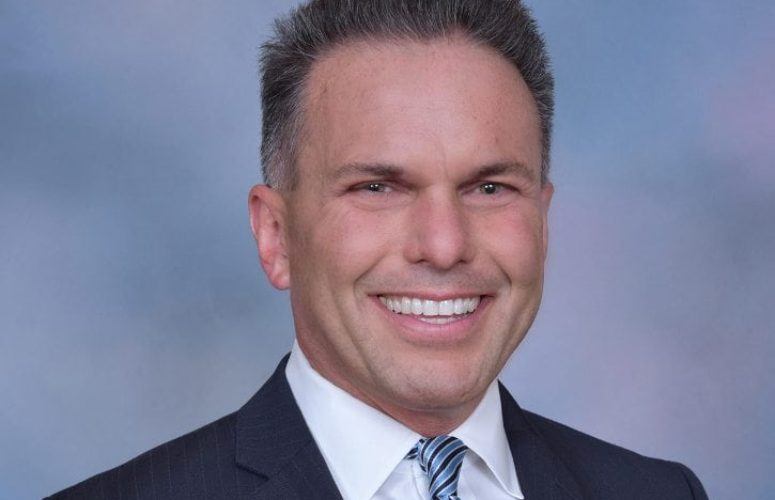
4 Banking Trends to Monitor in 2023
By Jim Pytell, Managing Editor On Jan 4, 2023As we turn the page to 2023, the banking industry is facing a plethora of key issues including a looming recession, rising interest rates, impactful legislation, consolidation and workforce challenges. At the same time, banks are continuing to identify areas to leverage new opportunities where possible.
According to Deloitte’s 2023 banking and capital markets outlook, the global economy remains fragile going into 2023, aggravated by an unprecedented confluence of factors such as Russia’s invasion of Ukraine, supply chain disruptions, rising inflation, and tightening monetary policy across the world.
As Deloitte puts it, in order to navigate through these uncharted waters, banks need to reassess traditional product, service and industry boundaries to create new sources of value.
Economy and Rate Hikes
Of course, the state of the economy will set the stage for the new year and have a ripple effect on many of the aforementioned issues that the industry will grapple with.
“In our outlook for 2023, we expect a recession in both the US and Europe as the frictions from higher interest rates, the war, and growth challenges in China continue to mount,” says Alma DeMetropolis, managing director, market manager for New Jersey at J.P. Morgan. “With that said, we also believe a recession will force inflation to fall through 2023 and into 2024.”
J.P. Morgan’s 2023 economic outlook report points out that in the US, activity in rate-sensitive sectors such as real estate and capital markets has collapsed, and economic weakness will likely broaden. However, it also states that restrained consumer and corporate debt and the lack of imbalances in the economy could act as buffers against a severe downturn.
One silver lining that the report highlights is a dramatic reset in valuations, which has created perhaps the most attractive entry point for stocks and bonds in more than a decade.
“Clients are cautiously optimistic for the year ahead, yet do remain concerned with inflation and geopolitical tensions. Our conversations with clients also show that they are mindful that there will be opportunities to take advantage of market setbacks or dislocations for long-term investing,” DeMetropolis says.
While a recession seems likely in 2023, according to J.P. Morgan, central banks should stop rate hiking campaigns by the end of 2023 and inflation will likely fall – though the historic pace of hikes has already posed serious risks to global economic growth.
In the US, 30-year mortgage rates have already breached 7% for the first time since 2001, and policy rates will likely move above 4% for the first time since 2006.
SAFE Banking Act
When it comes to regulations that will have a significant impact on the industry, the Safe Banking Act, which provides protections for financial institutions that work with state-legal marijuana businesses, is at the forefront.
“Although there are several significant regulatory issues facing the banking industry, the SAFE Banking Act is extremely important for banks to be able to handle the banking of marijuana businesses and the ancillary business of clients that own buildings, supply them with materials, and more,” says Chris Martin, executive chairman of Provident Bank. “While we are not actively financing any marijuana sales, we have clients that own real estate where a distribution location would possibly set up shop. This legislation would remove the underground economy of the movement of money and also the risk associated with cash sitting in vaults.”
“I think a fairly good percentage of our banks would jump into this because it will generate deposit business, fee income, and support local communities as well,” adds Michael Affuso, president and CEO of the NJ Bankers Association. “It will be a great boon for the cannabis industry itself.”
The legislation has passed the US House of Representatives multiple times, but at press time, has yet to make it past the Senate.
Consolidation
Another issue the industry is facing is consolidation. According to the NJ Bankers Association, as of March 2022, there were 58 New Jersey-headquartered banks – and close to 100 banks total – conducting business in the state, compared to 15 years ago, where there were 111 headquartered banks.
While consolidation may be driven by many factors, including underperformance and succession planning, Tom Lyons, senior executive vice president and CFO of Provident Bank says that positive factors can also be the driver.
“Our merger [with Lakeland Bancorp, for example,] will build an even larger and more durable balance sheet, increase our earnings, and enable us to further invest in technologies to improve the customer experience,” Lyons says. “I do think the consolidation trend will continue as banks look to secure the necessary resources to invest in growth and technology, pay for the regulatory burden inherent to the industry, and remain relevant in comparison to larger competitors.”
He adds that strong financial performance and a superior customer experience are the key elements to limiting consolidation, as they afford an entity the ability to control their own destiny, choosing a merger partner if and only when it best rewards their constituents and stakeholders.
Skilled Workers
Finally, the industry is not immune to the cutthroat post-pandemic labor market that so many sectors are struggling with today.
“We have rethought our approach to attracting and retaining the right talent to support our business strategy. With multiple generations in the workforce, flexibility has become the key,” says Carolyn Powell, executive vice president, chief human resources officer, at Provident Bank. “We strive to connect to people through multiple channels. We share our employer brand on social media platforms, such as LinkedIn, to promote our culture and career opportunities through postings and short form videos. We embrace our local roots by leveraging our close relationships with local partners and utilizing their career platforms to share our open positions.”
Powell says that it’s more important than ever to seek out candidates with “trainable” characteristics, rather than focusing on years of prior experience.
Affuso also adds that given the digital shift and technological evolution in the industry, the types of positions that banks need are changing, with technologists becoming a priority over traditional bankers.
Overall, the ability to think outside the box, be flexible, and innovate remains paramount for banks of all sizes looking to find success in 2023 and beyond.
To access more business news, visit NJB News Now.






